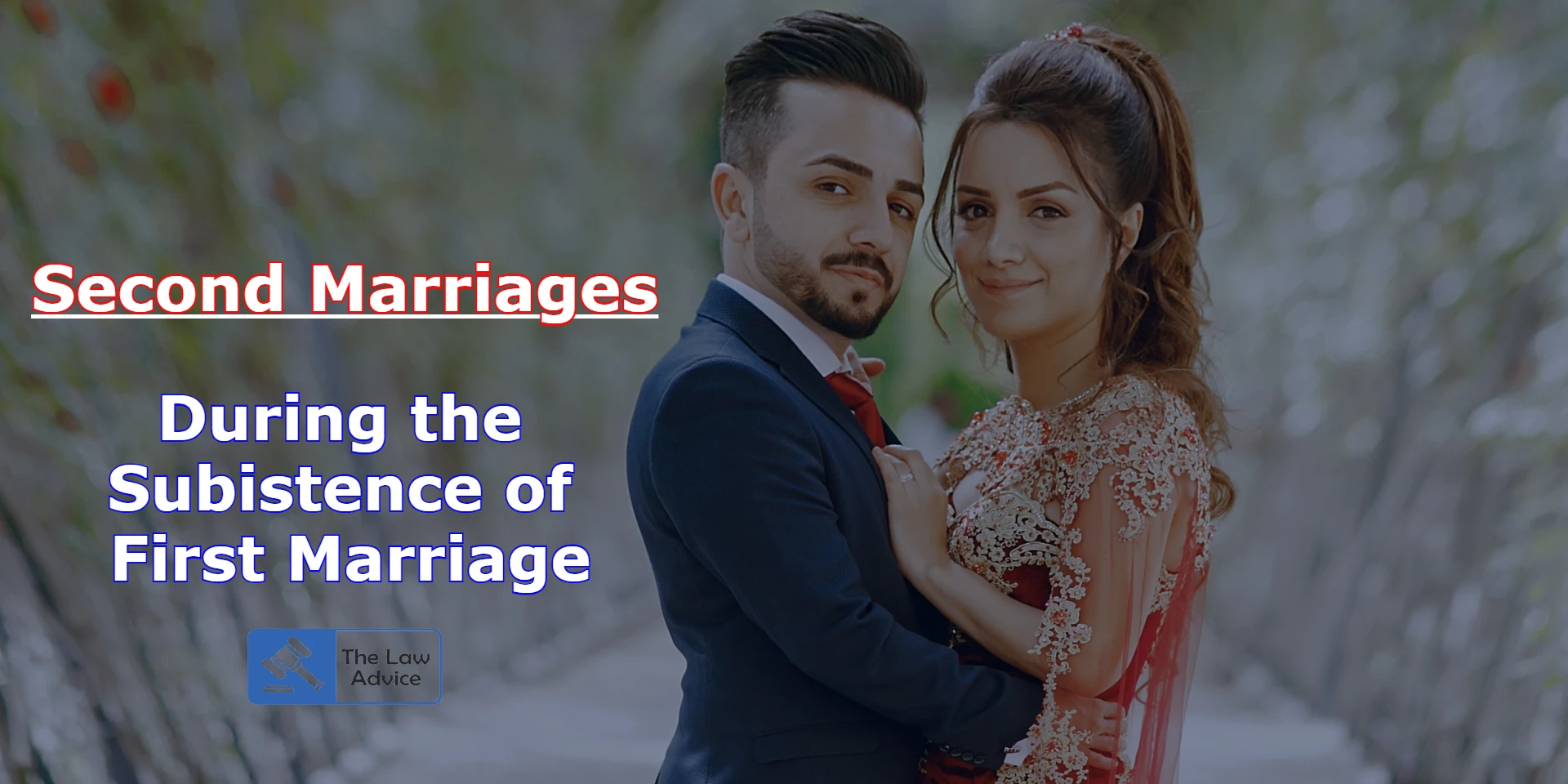Second Marriages During the Subistence of First Marriage
In India, contracting a second marriage while the first marriage is still valid is prohibited, and any such relationship has no legal recognition. The law is unequivocal on this point, yet “second marriages” remain prevalent in Indian society. This disparity between law and social practice often leaves second wives with minimal legal protection.
With the enactment of the Hindu Marriage Act, 1955 (HMA), one of the essential conditions for a valid marriage under Section 5(1) is that neither party should have a living spouse at the time of marriage. Under pre-1955 law, women were prohibited from remarrying while their husbands were alive, unless permitted by custom. Men, however, faced no such restriction until certain States legislated against bigamy, introducing monogamy among Hindus. Post-1955, aided by Section 11 HMA, second marriages have been declared void ab initio if performed during the subsistence of a valid first marriage.
For a marriage to be void under HMA, it must (a) be solemnized according to the requisite customs and rites, and (b) the first marriage must be legally valid and subsisting at the time of the second.
Social and Legal Challenges
The absence of legal status for a second wife, combined with social stigma and emotional trauma—especially where the woman was deceived into the marriage—makes her position extremely vulnerable. Judicial interpretation has sometimes extended limited maintenance rights to second wives, but in the absence of explicit statutory provisions, such relief depends heavily on judicial discretion.
Proving bigamy under criminal law is equally difficult because the prosecution must establish that the second marriage was solemnized with all essential religious ceremonies. Loopholes in these requirements are often exploited by men to avoid conviction.
Historical Perspective
Monogamy has generally been the norm since Vedic times, though polygamy existed in certain circumstances. Historically, the first wife held primary status, and subsequent wives were often treated as concubines. In colonial India, Hindu men could remarry freely while their first marriages subsisted. Customs sometimes required first-wife consent or provision for her maintenance before a second marriage, but such customs were rarely enforceable in courts.
Proof of Second Marriage
The Supreme Court has held that proving a valid second marriage requires evidence of solemnization in accordance with applicable religious rites (e.g., saptapadi in Hindu law). Mere admissions are insufficient. Without proof of essential ceremonies, a marriage cannot be deemed “solemnized” for the purposes of Section 17 HMA and Section 494 IPC.
Husband or Wife Must Be Alive
Section 494 IPC does not apply if the first spouse is dead or the marriage has been lawfully dissolved. A presumption of death may arise after seven years’ absence under Section 108 of the Evidence Act, as recognized in Lalchand Narwali v. Mahant Ram Rupgir.
Who Can Complain
In bigamy cases, only an aggrieved person can file a complaint. A wife’s father, as her lineal ascendant, may also do so on her behalf.
Relief Under Civil Law
While injunctions restraining a spouse from remarrying are generally not maintainable, civil courts have jurisdiction over suits seeking declarations of nullity. Under HMA, both parties to the marriage can seek such a declaration; a first wife can also challenge the validity of a husband’s second marriage.
Criminal Provisions
- Section 494 IPC (Section 82 BNS) : Punishable with imprisonment up to seven years for marrying again during the lifetime of a spouse.
- Section 495 IPC : Punishable with up to ten years if the first marriage is concealed.
- Section 415 IPC: Allows for prosecution on grounds of cheating if the subsistence of the first marriage is hidden.
Maintenance Rights
Under Section 125 CrPC, only legally wedded wives can claim maintenance. However, courts have, in certain cases, granted maintenance to women in void marriages—especially where they were deceived. Evidence such as joint bank accounts, voter lists, or public acknowledgment can help establish a marital relationship.
Provisions under Sections 24 & 25 HMA and Section 20 HAMA have been interpreted liberally to award interim or permanent maintenance to second wives, as in Rajesh Bai v. Shantabai and Kulwant Kaur v. Prem Nath.
Hindu Personal Law
Section 17 HMA criminalizes bigamy, making such marriages void and punishable under IPC. A second wife may seek annulment under Section 11 HMA, divorce under Section 13(2)(i), or maintenance under various statutory provisions, subject to judicial interpretation.
Conclusion
The lack of explicit statutory protection for women deceived into second marriages perpetuates injustice. While courts have occasionally provided relief through liberal interpretations, the uncertainty leaves many women dependent on judicial discretion. Clear legislative amendments are needed to safeguard the rights of such women and offer them meaningful remedies.

